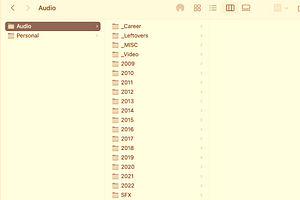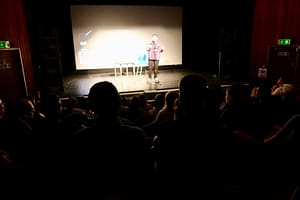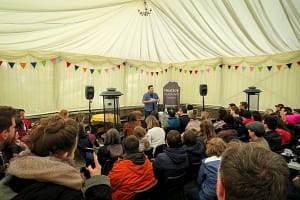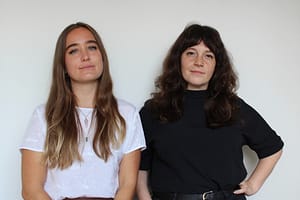
Quick guide to audio file management and naming conventions
I once asked a group of about eight audio makers about file management and the conversation almost ended in a
In 2020 I asked to go part time so I could kick off an independent podcast feed.
It was important for me to understand the experience of what it meant to be totally independent: to start something with zero institutional or commercial support.
“You’re like a real podcaster now!” my friend Jess laughed.
Which might seem an odd thing to say, considering I’ve been making podcast specific content at the ABC for several years.
But she was right. Just because you make podcasts does not make you a ‘podcaster’.
If you make videos for an organisation and the organisation put those videos on YouTube, does that make you a YouTuber?
I don’t think so.
Like the term ‘YouTuber’, being a ‘podcaster’ means something distinct, in attitude, experience, motivation, resources and more.
Understanding the difference matters.
There’s a big difference between a person who works as a Subway sandwich maker and Naji, my local sandwich shop owner, who also makes sandwiches.
The person who makes Subway sandwiches is fundamentally, a sandwich maker.
Their role is relatively defined. Although they contributed uniquely they don’t own the intellectual property of the sandwich, they are usually replaceable, but – and it’s a big but – they are (hopefully) earning a fair, consistent income.
Naji, the local sandwich shop guy, is a ‘sandwich-eur’. He created the infrastructure, he’s responsible from soup to nuts, and (in this case, because he wanted to earn money from it) took all the risk that comes with being an entrepreneur.
The Subway worker and Naji both personally make sandwiches.
But we need to acknowledge the deep chasm between how they each think about and solve sandwich problems, their goals, resources, how they strategise and measure sandwich success.
Will their unique experiences impact the taste of the sandwich? Probably.
And that chasm exists between podcast makers and podcasters too.
One is a transaction of skills, the other involves an investment. Neither is better; they’re different.
What’s important is that we respect our context, and how that informs the decisions we make about how we create and share remarkable stories.

I once asked a group of about eight audio makers about file management and the conversation almost ended in a

The alleyway is stereotypically dark and long. It’s after 1am, I have no idea where I am and my phone’s about to die.

Here’s what to expect from the ‘Who gives a fork?’ live show touring Aug/Sept 2022.

Jill Beytin, co-founder of Bear Radio, describes where the local scene is at including a juicy story about a recent controversy with one of Germany’s public broadcasters.
get the latest news about upcoming projects:
© 2021 mike williams